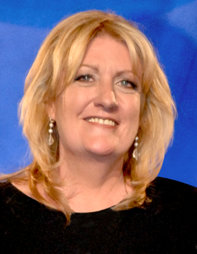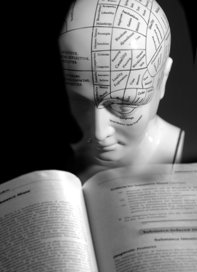Message from the President

President, CCHR International
Most people today have difficulty understanding the destructive impact psychiatry has on communities around the world.
For far too many, the lesson is learned only after a psychiatrist has destroyed some part of their life.
The destruction might come in the form of the death of their child due to long-term usage of a stimulant drug, prescribed for an invented psychiatric disorder called Attention Deficit Hyperactivity Disorder (ADHD). It could be the loss of a loved one at the hand of a gun-toting teenager prescribed a violence-inducing psychiatric drug and/or one who had undergone death education or anger management classes (as was the case in the Columbine school massacre in 1999). Perhaps it is the death of an elderly mother or father from electroshock treatment or an antipsychotic drug prescribed at a nursing home. It could be a child labeled mentally ill early in school, prescribed addictive, psychotropic drugs more potent than cocaine, who later becomes a hard-core street-drug addict because he could not tell the difference between a street drug and those prescribed to him.
At CCHR, we work continuously to educate you on the truth about psychiatry, providing information that psychiatrists would prefer you didn’t have. For example, in 2008, Dr. Nada Stotland, the president of the American Psychiatric Association, acknowledged that CCHR “influences our legislatures, our Food and Drug Administration, our schools, and our media as a moving force behind the unwarranted ‘black box warnings’” on the potentially lethal effects of psychiatric drugs. Note that in Dr. Stotland’s opinion, warning children, adolescents and young adults that could become suicidal while taking antidepressants—a fact the drug regulatory agencies the world over have determined is vital information—is “unwarranted.”
Only by providing all the facts about the risks of psychiatric treatment can we possibly reduce the number of victims who unfortunately learn this truth through personal tragedy.
A Complete Lack of Science

One of the most important things to know about psychiatry is the complete lack of science supporting its system of diagnosis or its treatments. Take, for example, the psychiatric “billing bible,” the Diagnostic and Statistical Manual of Mental Disorders, or DSM-IV. Not one of the 374 disorders described therein has ever been proven to exist by observable pathology or objective tests. Instead, a panel of psychiatrists arbitrarily defined symptoms of each mental disorder and then literally voted on their suitability for inclusion in the DSM. By this system, if a newly defined mental disorder loses the vote, it fails to make it into the DSM. The system is subjective and ambiguous; its terminology is ill-defined or altogether undefined.
In spite of such serious and fundamental flaws, this system is widely accepted as the benchmark for both judging human behavior and determining treatments in courts, prisons and schools. In many countries, the DSM forms the basis of mental health services billings to insurance companies and bogus “mental health screening.”
By medicalizing everyday problems, psychiatry has fraudulently labeled millions as mentally ill, and either forced or convinced them to adopt prescription psychotropic drugs as a routine part of their lives. As a result, psychotropic drug consumption has escalated with 100 million people worldwide now taking these drugs, 20 million of whom are children.
CCHR remains dedicated to exposing the scientific myths and hype with which psychiatry has managed to surround its diagnostic system and treatments. We work with medical doctors and other professionals that see it as their duty to ensure that government policy and regulations provide the strongest warnings about psychiatric treatments.
Our work aligns with the United Nations Universal Declaration of Human Rights, which reads, in part:
- “No one shall be subjected to torture or to cruel, inhuman or degrading treatment or punishment,”
- “All are equal before the law and are entitled without any discrimination to equal protection of the law,”
and - “Parents have a prior right to choose the kind of education that shall be given to their children.”
Psychiatrists violate these Articles on a daily basis.
Through psychiatrists’ false diagnoses, stigmatizing labels, easy-seizure involuntary commitment laws, brutal, depersonalizing treatments all over the world, thousands needlessly fall into their coercive system every day. It is a system that exemplifies human rights abuse and denies individuals their inherent rights.
Each year thousands of psychiatric victims or their families contact CCHR to report incidents of psychiatric harm. And it’s a litany of maltreatment: sexual abuse, brutal institutional treatment and conditions, hospital fraud, false imprisonment, patient deaths and even murder.
Through the work of CCHR
Scores of parents are denied the right to choose the kind of education their child should be given, are coerced into administering mind-altering psychiatric drugs, or forced to subject their children to mandatory “screening” for mental disorders for which no scientific evidence exists.
However, through the work of CCHR:
- Legislation in the U.S. has been enacted that bans the use of electroshock and psychosurgery on children.
- Legislation has been passed in Piemonte, Italy, which prohibits the use of ECT on children, the elderly and pregnant women.
- Laws on informed consent for treatment have been passed, thereby reducing the numbers of people subjected to ECT.
- Deep sleep treatment—a lethal combination of drugs and electroshock—has been banned in Australia, where it had been responsible for at least 48 deaths.
- A U.S. law has been enacted prohibiting children from being forced onto psychiatric drugs as a requisite for their education.
- In several countries, federal regulations and laws have been enacted against the use of coercive restraint methods.
- Legislation has been enacted directing that psychiatric rape of patients is dealt with through criminal courts.
- Legal precedents have been set ensuring that patients abused by psychiatrists have the right to sue in a civil court, and be compensated for damaging psychiatric treatment to which they have been subjected.
- Thousands of citizens have been rescued from illegal incarceration or unlawful detainment and patients have regained their legal and civil rights.
Mental health can be created, but only through:
- Effective mental healing delivered in a calm atmosphere characterized by tolerance, safety, security and respect for people’s rights.
- By restoring individuals to personal strength, ability, competence, confidence, stability, responsibility and spiritual well-being.
- Using highly trained, ethical practitioners who are committed primarily to the well-being of their patients and their patients' families, not financial gain.
This description bears no resemblance to mental treatment under psychiatry today. Psychiatry does not produce mental health, but rather mental ill health and millions of ruined lives.
At CCHR we work to help bring about an environment for mental healing that is based upon human dignity and decency. As a result of our efforts, millions have avoided the ravages of psychiatric treatment.
We welcome you to our website and hope you will avail yourself of this opportunity to better guarantee the future for your loved ones, your friends and yourself.
Sincerely,
Jan Eastgate
President
Citizens Commission on
Human Rights International
Jan Eastgate has investigated psychiatric abuses for more than thirty years. Politicians, lawyers, psychologists and civil rights workers have described her as a “tireless campaigner” and a person of “enormous determination and courage who has performed remarkable work.” In her native Australia, Ms. Eastgate helped achieve a Royal Commission (highest level of government inquiry) into deep sleep treatment, a lethal psychiatric practice involving a heavy drug cocktail and electroshock. The government banned this practice and compensated hundreds of patients. Based in Los Angeles at CCHR’s international headquarters for more than fifteen years, Ms. Eastgate has personally conducted investigations into and inspections of psychiatric facilities and conditions in the Czech Republic, Denmark, Greece, Germany, New Zealand, South Africa, Russia and the United States.








